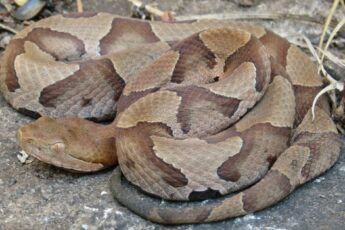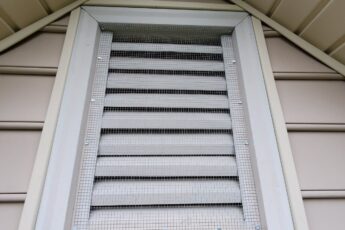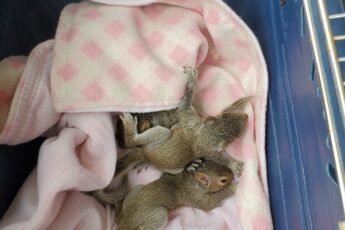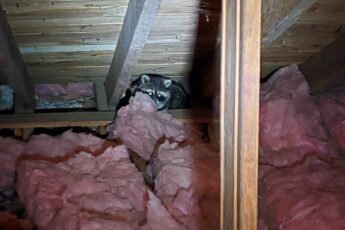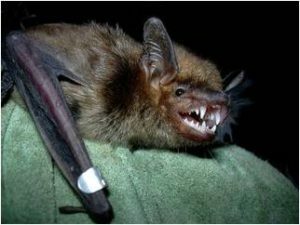
We are currently almost at the end of maternity season for bats. Maternity season lasts from May 1st until the end of July, and it is a period of time where the female bats have babies which will not be able to fly for a few months. During maternity season, wildlife control agencies like us cannot remove a mother bat out of a person’s home after she has given birth because it will negatively impact the natural habits of the bats. This means we have been unable to remove bats from people’s homes, but starting in August we will be able to again. We wanted to write a post to talk about the dangers of having bats in your home and about the importance of sealing up your home to prevent re-entry.
One of the most dangerous parts about having bats in your home is the fact that they have the chance to transmit diseases such as rabies and histoplasmosis. Below we listed two common diseases that bats carry, and how the diseases are transmitted.
Diseases Bats Commonly Carry
- Rabies: In North Carolina, rabies is the most common type of disease transmitted by bats. If a person is bitten by a bat carrying rabies, they will need to receive a lot of health treatments if they were not previously vaccinated. This disease can be potentially deadly, which is why it is very important to get vaccinated if you think you may be at risk.
- Histoplasmosis: Bats carrying this disease can pose a threat to humans and other mammals. It is commonly spread through the inhalation of air around bat feces, so if you are aware that there is a bat in your home then you should not go near it without wearing a mask to protect your mouth and nose. This infection can take weeks to get rid of, and it can be very dangerous, which is why we recommend having a professional come in and check out your bat problem before you do.
Bats will find access points to residential and commercial buildings where they feed, raise and nest their young. In general, they settle in dark and isolated areas, such as attics and sheds. There are many signs that point towards an infestation of bats. If you hear squeaks and scratches in the night, this could mean that you have bats somewhere in your home. The most common way to discover bat colonies in homes is to spot them at night when they are looking for food. Bats always move at night in order to eat, mostly on insects. They are hard to miss when they fly from their sleeping place.
We previously posted a blog with some helpful tips to protect your home from bats, and we suggest that you check it out! If you are concerned that there are are bats in your home, or you want to plan ahead and have your home inspected and excluded so that no bats can enter your home, give us a call!



